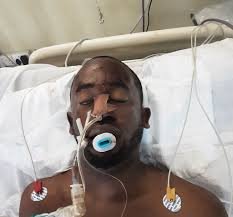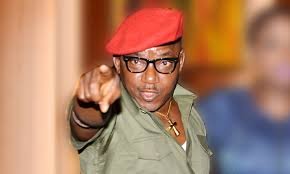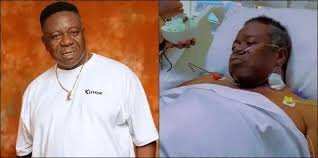In Nigeria, the high cost of healthcare is a stark reality for many citizens who now have deviced ingenious ways for survival, including crowdfunding.
Against the background the multifaceted approaches to survive the high living (Medication) cost in Nigeria, Juliet Jacob takes a critical look at crowdfunding, an aspect that is growing wide.
Systemic Failure in Healthcare Sector
As a result of high cost of medicines, medications and medical treatments generally, hundreds of thousands of Nigerians now turn to crowdfunding as their last hope for medical treatment.
Africa Health Report AHR, can confirm that over the past five years there is swelling numbers of Nigerians who have survived life threatening medical conditions, or rather end case ailments through donations from crowdfunding. In recent time, this method has proved to be the oxygene for dozens of persons that would have passed away due to lack of accessible healthcare for all citizens. We have examples such as;
Fubara
The consequences of financial barriers to healthcare are severe, with numerous deaths reported due to the inability to afford basic medical care.
Recently, Rachel Fubara, a Nigerian woman who sought help on social media for cancer treatment, passed away in India. Despite reaching India for treatment through the support and donations of well-wishers, her campaign may have been more effective if initiated and responded to earlier.
Oyedele
A similar tragic event occurred in March 2018, when family members, friends, co-workers, and well-wishers gathered at the Lagos University Teaching Hospital (LASUTH) to donate blood in memory of Timilehin Oyedele. Timilehin, who suffered from leukaemia, lost her battle due to a slow response to her campaign for blood and medical bill donations. Rapid care and timely support might have saved her life.
Since the introduction of crowdfunding in Nigeria, platforms like Fundmeng, a local alternative to GoFundMe, have successfully raised donations for various medical causes. These efforts have saved many lives, highlighting both the potential of crowdfunding and the critical gaps in Nigeria’s healthcare system.
John Okafor (Mr Ibu)
In another notable case, actor John Okafor, known as Mr. Ibu, had his leg amputated in November after fans donated through a crowdfunding scheme. Sadly, Mr. Ibu later passed away at Evercare Hospital Lekki in Lagos.
According to health experts, this desperation underscores a systemic failure in the country’s healthcare system, driven by inadequate government funding which has continue to undermine efforts at universal health coverage.
Daily Struggle for Affordable/Accessible Medication

The worried faces of Nigerians in most chemotherapy departments of hospitals across Nigeria, such as those in Lagos University Teaching Hospital (LUTH) and Abuja, the sight of patients and their families seeking help to pay for services to their family members tells the true picture of what Nigerians go through daily. No wonder crowdfunding has become all too common. The high costs of chemotherapy, often amounting to hundreds of thousands of Naira, are beyond the reach of many. As a result, patients are left with no choice but to appeal for public donations, hoping to gather enough funds to begin or to continue their treatment. This reliance on crowdfunding extends to other costly medical procedures as well.

Grim Testimony from a Former Minister
The ordeal of Solomon Dalung, former Minister of Sports and Youth Development, highlights the dire state of Nigeria’s healthcare system.
Dalung’s near-death experience at a hospital in Jos, Plateau State, paints a grim picture. After falling ill and arriving at the hospital, he was left unattended for over four hours due to the inability to pay an admission deposit of N80,000.

Despite being a long-term client of the hospital, he was denied immediate care. “Were it not for partial consciousness to pay the deposits, I would have been Mr. late,” he recounted, emphasizing that many Nigerians have died under similar circumstances due to lack of immediate medical attention.
The Reality of Medical Neglect
Dalung’s story is not unique. Many Nigerians face similar neglect in hospitals when they cannot afford upfront payments. This situation is especially dire in rural areas where healthcare facilities are sparse, and access to financial resources or insurance is even more limited. Patients are often required to pay deposits before receiving any form of treatment, a practice that has resulted in countless preventable deaths.
Systemic Failures and Barriers to Health Insurance
Globally, it is agreed that access and affordable health services without insurance is a herculean task even for the rich. In Nigeria, besides inadequate government funding, a significant lack of awareness about health insurance persists, weak involvement of Faith Based Organizations, FBOs, in driving uptake of health insurance in the rural areas, has continued to keep the spread at very low figures. Religious beliefs also play a role, as some view reliance on medical care as a lack of faith. These barriers significantly impact the willingness and ability of individuals to participate in health insurance programs.
Consequently, the National Health Insurance Scheme (NHIS) has notably failed to cover the majority of Nigerians, particularly the unemployed (33% of the population) and the self-employed, who make up 81.37% of the total employed. Coverage among artisans is a mere 3.4%. Additionally, dissatisfaction with services and issues with healthcare providers’ remunerations have been reported.
Dr. Michael Obi, a health policy expert, explains, “The low enrollment rate underscores the system’s inability to reach the vast majority of the population.”
For Reverend Fr. Genesis Onah, a lecturer at Abuja based Catholic Church owned Veritas University and a representative of Our Lady of Fatima Hospital, Bwari, Abuja, lack of involvement of Faith Based Organisations, FBOs, in the drive for wider coverage of health insurance in Nigeria, is another big problem.
Government he said needs to prioritize the involvement of FBOs in bringing rural dwellers under health insurance because of “incredible work the church has been doing taking health to the hinterlands in the country in the past 50 years”
Agreeing with Rev. Fr Onah, internationally respected expert on UCH, Dr Dennis Cherian, Associate Vice President, Global Health and Nutrition, CORUS International, explained that UCH has eluded Africa, Nigeria inclusive for too long. “UHC is achievable, but we must set targets and committedly work towards attaining those target” explained Cherian who added “the PHC (Primary healthcare) is the foundation for attaining UHC, I will like to see greater collaboration between the government and the faith based organisation in service provision especially at the grassroots”
The Crux of the Matter
The crux of the issue lies in the government’s failure to provide adequate health insurance coverage. Since the introduction of health insurance in Nigeria in 1999, only about 5% of the population, primarily federal government workers, have access to it. This leaves the vast majority of Nigerians, especially the poor and those in the informal sector, without any form of health insurance. In contrast, neighboring Ghana, which introduced health insurance in the same year, had achieved a coverage rate of 53% by 2018.
Spark of Hope from Ghana
Ghana interestingly presents a contrasting data. Its 2021 census reports that 68.6% of the population is covered by either the National Health Insurance Scheme (NHIS) or private health insurance schemes, with higher rates of coverage among females (72.6%) than males (64.5%). Coverage ranges from 51.9% in the Oti Region to 86.2% in the Upper East Region. This shows significant growth compared to 2014-2015, when approximately 40% of the population had active NHIS membership. Ghana continues to strive towards achieving Universal Health Coverage by 2030 through extensive community outreach.
The Economic Toll of Healthcare Costs
The economic burden of healthcare costs is driving many Nigerians into poverty. Simple yet deadly diseases like malaria claim approximately 400,000 lives annually because many cannot afford the necessary medication. For those in the middle class, a serious illness such as cancer can quickly deplete their savings, revealing the precariousness of their financial stability. The lack of universal health coverage means that even those who are relatively well-off are just one serious illness away from financial ruin.
The economic cost of this healthcare crisis is immense. Without the safety net of health insurance, Nigerians are forced to sell their properties, exhaust their savings, and rely on public generosity to survive. This is not only a failure of the healthcare system but a moral failing of the government to protect its citizens’ fundamental human rights. The United Nations and the World Health Organization assert that access to healthcare is a fundamental human right, yet in Nigeria, it remains a privilege for those who can afford it.
A Call for Change
The dire situation calls for urgent reforms. The government must prioritize universal health coverage to ensure that every Nigerian, regardless of financial status, has access to necessary medical care. This could involve introducing health insurance schemes for informal sector workers and market women, funded through small contributions and government subsidies. Ensuring that even the poorest can afford basic healthcare is essential for the nation’s overall health and well-being.



